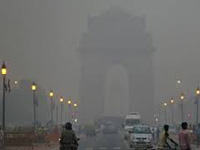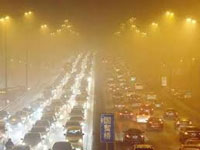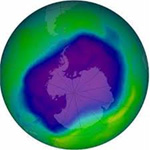India's journey towards sustainable cooling
Sustainability, for long, has been at the core of Indian lifestyle and its indigenous knowledge and sustainable practices have played a crucial role in helping people be informed and make environmentally
Sustainability, for long, has been at the core of Indian lifestyle and its indigenous knowledge and sustainable practices have played a crucial role in helping people be informed and make environmentally
<p>India has become the first country in the world to develop this draft blueprint outlining action plan to bring down cooling requirement and refrigerant demands across sectors by 20 per cent to 25 per cent by 2037-38 while slashing cooling energy requirements by 25 per cent to 40 per cent within the same period. It was released by the Union Environment Minister Harsh Vardhan.</p>
Overall efforts to reduce the use of chemicals harming the ozone layer across the European Union continued in 2017 and the EU has already achieved its goals on the phase-out of ozone-depleting substances
Last year was the warmest ever recorded on Earth that didn’t feature an El Niño, a periodic climatic event that warms the Pacific Ocean, according to the annual state of the climate report by 500 climate
An environmental pressure group claimed that Chinese factories are illegally using ozone-depleting CFCs, which have recently seen a spike in emissions that has baffled scientists. The Environmental Investigation

NEW DELHI: Delhi and its neighbouring cities -- Faridabad and Gurgaon -- have witnessed "substantial ozone build-up" from February to May, a green body claimed on Thursday, cautioning that it was early

As the world grapples with the challenge of climate change, a top Indian scientist has called for the opening of more Indian research stations in the Arctic. "India's observer status in the Arctic Council

NEW DELHI: Not just extreme heat, air pollution levels are also peaking in many parts of the city. Even ozone (O3) levels are beginning to cross the safe standard — PM2.5 concentrations are already nearly

PARIS: The decline in the atmosphere of an ozone-depleting chemical banned by the Montreal Protocol has recently slowed by half, suggesting a serious violation of the 196-nation treaty, researchers revealed
The Montreal Protocol was designed to protect the stratospheric ozone layer by enabling reductions in the abundance of ozone-depleting substances such as chlorofluorocarbons (CFCs) in the atmosphere. The

Air pollution is not only injurious to human health, but also to plant life. Scientists from Banaras Hindu University (BHU) have found that most wheat cultivars developed after the year 2000 are more sensitive